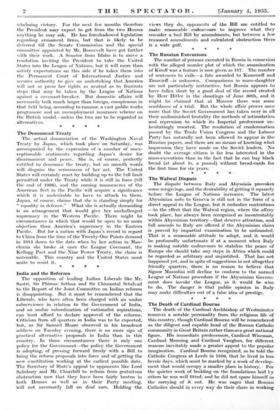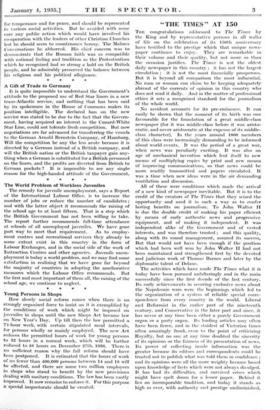The Death of Cardinal Bourne The death of the Cardinal
Archbishop of Westminster removes a notable personality from the religious life of this country, though Cardinal Bourne will be remembered as the diligent and capable head of the Roman Catholic -community in Great Britain rather than as a great national figure. His immediate predecessors, Cardinal Wiseinan, Cardinal Manning and Cardinal Vaughan, for different reasons inevitably made a greater appeal to the popular .imagination. Cardinal Bourne recognized, as he told the Catholic Congress at Leeds in 1910, that he lived in less .heroic days, which must be marked by a work of develop- ment that would occupy a smaller place in history. For the quieter work of building on the foundations laid ty others he was well fitted, and he did not spare himself in the carrying of it out. - He was eager that Roman Catholics should in every way do their share in working for temperance and for peace, and should be represented in various social activities. But he avoided with some care any public action which would have involved his co-operation with the leaders of other Christian Churches lest he should seem to countenance heresy. The Malines Conversations he abhorred. His chief concern was to demonstrate that the Roman faith was as compatible with national feeling and tradition as the Protestantism which he recognized had so strong a hold on the British people, and he admirably preserved the balance between his religious and his political allegiance.







































 Previous page
Previous page